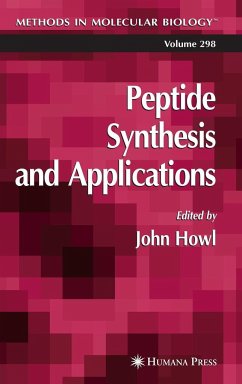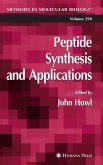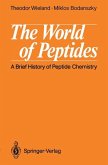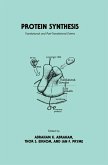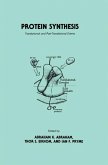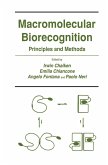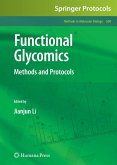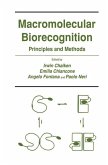Hands-on experts describe in step-by-step detail the key methodologies of contemporary peptide synthesis and illustrate their numerous applications. The techniques presented include protocols for chemical ligation, the synthesis of cyclic and phosphotyrosine-containing peptides, lipoamino acid- and sugar-conjugated peptides, and peptide purification and analyses. Additional chapters detail methodologies and instrumentation for high-throughput peptide synthesis, many different applications of peptides as novel research tools and biological probes, and the design and application of fluorescent substrate-based peptides that can be used to determine the selectivity and activity of peptidases. A practical guide to the identification of proteins using mass spectrometric analyses of peptide mixtures is also included. Peptide synthesis provides novel materials that can serve as both valuable research tools and candidate therapeutics. In Peptide Synthesis and Applications, a panel of expert researchers and established group leaders describe in step-by-step detail the key methodologies of contemporary peptide synthesis and illustrate numerous applications that employ peptides as unique and essential materials. The techniques presented include protocols for chemical ligation, the synthesis of cyclic and phosphotyrosine-containing peptides, lipoamino acid- and sugar-conjugated peptides, and peptide purification and analyses. Additional chapters detail methodologies and instrumentation for high-throughput peptide synthesis, many different applications of peptides as novel research tools and biological probes, and the design and application of fluorescent substrate-based peptides that can be used to determine the selectivity and activity of peptidases. A practical guide to the identification of proteins using mass spectrometric analyses of peptide mixtures is also included. The protocols follow the successful Methods in Molecular Biology series format, each offering step-by-step laboratory instructions, an introduction outlining the principle behind the technique, lists of the necessary equipment and reagents, and tips on troubleshooting and avoiding known pitfalls.
State-of-the-art and highly practical, Peptide Synthesis and Applications offers novice and experienced investigators alike powerful techniques for the design and manufacture of their own peptide-based materials that can be used as productive research tools or developed as promising new therapeutics.
State-of-the-art and highly practical, Peptide Synthesis and Applications offers novice and experienced investigators alike powerful techniques for the design and manufacture of their own peptide-based materials that can be used as productive research tools or developed as promising new therapeutics.

